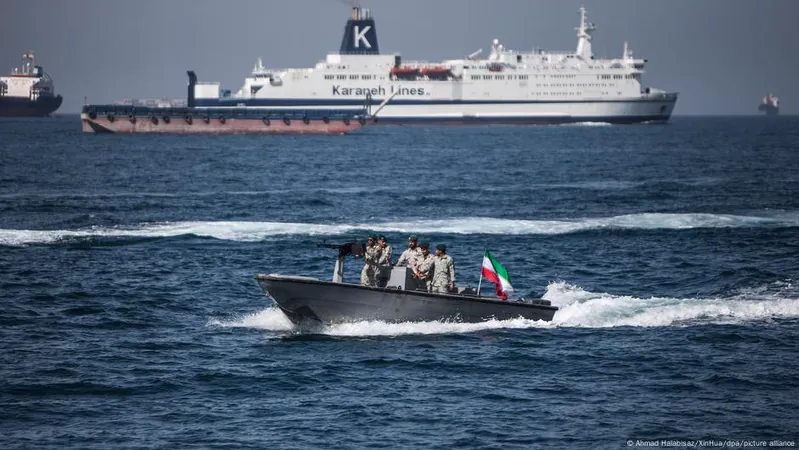
Iran's Dilemma: The High Stakes of Blocking the Strait of Hormuz
2025-06-26
Author: Kai
A Tenuous Situation: Iran's Calculated Moves
In a tense geopolitical climate, the world recently held its breath as tensions flared between Israel, the US, and Iran. Although Iran chose to retaliate by striking a US military base in Qatar, the action was subtle enough not to unsettle the oil markets, with prices notably dropping right afterward.
The High-Stakes Card: Strait of Hormuz
Despite this restrained approach, Iran possesses a powerful leverage point: the Strait of Hormuz, a crucial waterway for global oil transport. But the question looms—would blocking this passage be a strategic move for Iran, or would it backfire?
Oil: The Lifeline of Iran's Economy
The US Energy Information Administration (EIA) highlights that Iran's economy, while somewhat diversified, heavily relies on oil exports, which account for over 17% of its total exports. In 2023, Iran ranked as the fourth-largest oil producer in OPEC and was the third-largest producer of dry gas, emphasizing the importance of these resources for the Iranian economy.
Navigating Sanctions: Iran's Oil Exports Continue
Even under strict international sanctions, Iran has managed to continue its oil exports, with China being a major beneficiary, importing nearly 90% of Iran’s oil in 2023. Reports from Javad Owji, Iran's former Minister of Petroleum, indicated that oil exports generated over $35 billion in revenue for the country, making up more than 8% of its GDP by the end of 2023.
China's Crucial Role in Iran's Oil Trade
Given this dependency, a blockade of the Strait of Hormuz would harm Iran's own financial interests while jeopardizing its relationship with China. The Beijing refineries, which purchase Iranian oil at a significant discount due to US sanctions, would be adversely affected, likely leading to strained trade ties.
Regional Repercussions of a Blockade
A blockade would also have disastrous implications for neighboring nations such as Kuwait, Iraq, and the UAE, who also rely on this strategic passage for their oil exports. According to Gulf region analyst Justin Alexander, such an action could jeopardize whatever alliances Iran has left in the region.
The Risk of a Military Response
Moreover, experts like Homayoun Falakshahi from Kpler suggest that attempting to close the strait could trigger a swift military response from the US and European allies, asserting that Iran could only maintain such a blockade for a limited time.
Domestic Impact: A Crumbling Economy
Even as it grapples with international pressures, domestic economic challenges are intensifying in Iran. Djavad Salehi-Isfahani, an economics professor, warns that sanctions have driven the standard of living down to levels not seen in two decades, contributing to spiraling inflation rates—exceeding 38.7% in May 2025.
Conclusion: A Dangerous Game of Leverage
In this high-stakes game, while Iran holds significant cards with its oil exports and the Strait of Hormuz, any aggressive action could have severe consequences, not just for its trading partners but ultimately for its own economy and stability.




 Brasil (PT)
Brasil (PT)
 Canada (EN)
Canada (EN)
 Chile (ES)
Chile (ES)
 Česko (CS)
Česko (CS)
 대한민국 (KO)
대한민국 (KO)
 España (ES)
España (ES)
 France (FR)
France (FR)
 Hong Kong (EN)
Hong Kong (EN)
 Italia (IT)
Italia (IT)
 日本 (JA)
日本 (JA)
 Magyarország (HU)
Magyarország (HU)
 Norge (NO)
Norge (NO)
 Polska (PL)
Polska (PL)
 Schweiz (DE)
Schweiz (DE)
 Singapore (EN)
Singapore (EN)
 Sverige (SV)
Sverige (SV)
 Suomi (FI)
Suomi (FI)
 Türkiye (TR)
Türkiye (TR)
 الإمارات العربية المتحدة (AR)
الإمارات العربية المتحدة (AR)